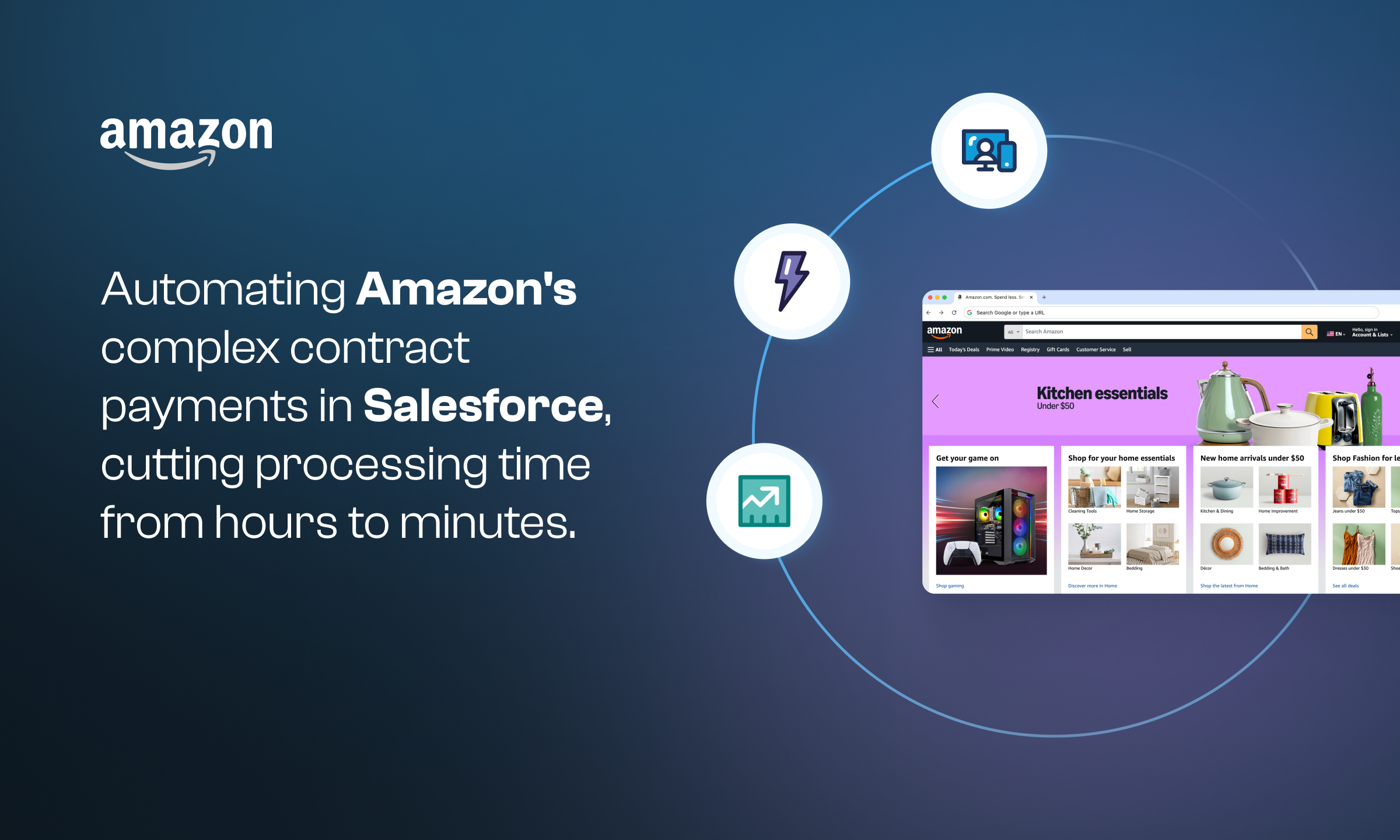Who They Are
The Amazon App Store is one of the many divisions in the Amazon universe. One of the services they offer is FreeTime Unlimited, a service that allows monthly subscribers to play as many games as they want. To make this unlimited game play possible, the App Store needs to build relationships and secure deals with hundreds of different third-party game developers. Amazon usually pays its partners over time. Some agreements require annual payments, others quarterly payments, and some others weekly ones.
The Challenge
When they first came to Modelit, the App Store's finance team was manually using spreadsheets to input data on every single deal. That meant someone had to take time to review the contract, punch numbers into a spreadsheet, make a payment plan, and track payments over time. Within this system, the team couldn't set reminders or generate reports — and worst of all, they were spending a whole lot of time on manual data entry.
They needed an efficient system that could automatize the processing of hundreds of different contracts, while keeping track of the different payment schedules agreed upon in each individual deal. They needed a team to help do the intensive programming and to take ownership of all the technical software programming requirements. That was our cue!
We had to think outside of the box to build a solution for this problem. One of the key parts during one of the first stages of the project was to determine how many records the system was able to process without breaking. This allowed us to go for a Salesforce-only solution instead of having to create something more complex.
Natalia Larrieux - Team Lead, Modelit
The solution
We kicked off the project with discovery calls to understand the specific needs and challenges that the Amazon team was facing. We discussed with the different stakeholders the complex calculations and formulas involved in the processing of these contracts. Once we understood the scope of the project, we jumped into creative solutions.
In just 3 months, we built a payment and amortization scheduler inside Salesforce to help Amazon track the contracts signed with third-party game developers. What was before a long process of manual data entry in a spreadsheet is now the push of a few buttons after closing a deal. It used to take a couple hours per contract — now it only takes a couple minutes.
In the past, the finance team had to review the business team's contracts and upload everything to a spreadsheet. Now, the business team — the very folks who closed the deals — are the ones setting up the payment plan directly in Salesforce. Once the payments are scheduled, the finance team gets customized reminders and payment alerts, to ensure that Amazon's partners get paid on time. The finance team can also automatically generate reports whenever they need to. That's a win, win, win situation.
It's very fulfilling to see our solution working and being used by the people who work on data entry—knowing that we could save time and energy for the Amazon team, which helped us to achieve our goal of empowering organizations and individuals with Salesforce.
Natalia Larrieux - Team Lead, Modelit
How we helped
With this new feature, the Amazon App Store team was able to streamline their payment schedule and calculation processes. That means they:
- Save time. By reducing the time needed to produce and follow up on contracts with partners, the team turned a 2-hour process into a 2-minute process.
- Protect relationships. By setting different kinds of payment reminders and ensuring budget amortization, the team makes sure they pay their partners on time.
- Avoid headaches. By automatizing this process, the business team is more efficient, and the finance team gets to avoid unnecessary data entry.
This new feature has allowed Amazon to automatically track, follow up on, and honor hundreds of contracts. But most importantly, this collaboration allowed Amazon to find a cost-effective, committed, and trustworthy Salesforce partner.












